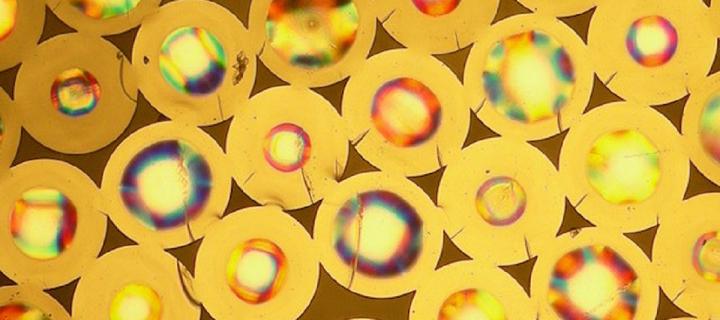Research themes
The research in Edinburgh Infectious Diseases can be grouped into six major cross-cutting themes. There is significant depth in research on immunology and vaccines, antimicrobial resistance, host-pathogen interactions, pathogen evolution, and social and healthcare dynamics. Find out about each theme and discover some of our research highlights on the pages below.
Immunology and vaccines

Several groups in Edinburgh addressing are how pathogens evade immune attack and how they can modulate and modify host immunity to their own advantage. There are also a number of researchers investigating the modes of immune responsiveness most effective at resolving infection, and how molecular vaccines can be used in human and animal health to stimulate protective immunity.
Molecular pathogenesis

Research in this theme is investigating the molecular and cellular nature of the virulence factors by which pathogens target their hosts. Major projects are addressing the molecular basis of host-pathogen interactions, how these interaction cause pathology, immune responses and disease transmission, and how this knowledge can exploited therapeutically.
Disease dynamics

This theme emphasises quantitative approaches to understanding the pathogenesis and transmission of infectious diseases and involves epidemiology, genetics and evolution, and mathematical biology. It includes the epidemiology of endemic and exotic pathogens, mathematical modelling of host-pathogen interactions, and the informatics of pathogen evolution.
Genetic basis of resistance

This theme explores the basis of host resistance and resilience to infection, examining the role of that host genetics and the microbiome play in determining the outcome of infection, to allow breeding of animals with increased resistance to disease and designing stratified medicine approaches to treatment.
Clinical and translational research

A key aim in Edinburgh is to move infection research from the bench to the bedside, engaging with the clinical community both in Edinburgh and in overseas countries to prioritise, the most effective laboratory research to solve pressing global health problems.
Social and healthcare dynamics

The factors influencing how diseases are spread within communities, and how underlying cultural, social, and economic issues impact disease control and treatment delivery, provide rich opportunities for collaboration between social, clinical and biological scientists in Edinburgh.


